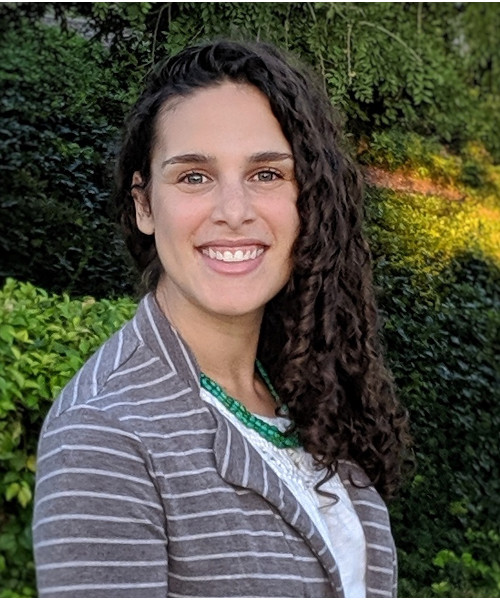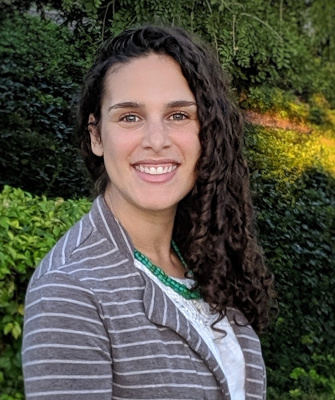
Stephanie Witkowski (MA 2013), Executive Director of of 7000 Languages

Stephanie Witkowski, who graduated from the UH Mānoa Department of Linguistics with an MA in 2013, is currently the Executive Director of 7000 Languages, a nonprofit organization that partners with Indigenous communities worldwide to create language learning materials and promote language sustainability.
Stephanie has been working in the world of nonprofits for the last ten years, and she credits the time she spent in the Department of Linguistics with really helping her to focus on her ultimate goal of working with Indigenous language communities in service of language reclamation and language learning. “I took classes in the Language Documentation & Conservation track of the MA program. I came in with a focus on language documentation, but by the time I was in my second year, I was really starting to focus my attention towards language revitalization.”
Stephanie remembers being very involved in the Language Documentation Training Center (LDTC), a student-run organization in the department that pairs linguistics graduate students with speakers of underrepresented languages on campus and in the Honolulu community. “What I think sold me on the program at UHM was the LDTC. I just remember learning about that on day one, during orientation. It was really exciting to me, the opportunity to participate in LDTC. I just thought ‘I really want to be a part of that!’” Stephanie says the time she spent working with the LDTC really shaped her interests. “It was transformative for me, to get to work with speakers who really want to preserve and share their languages and cultures.”
After graduating, Stephanie started a PhD program in linguistics at the University of Chicago, but she longed to both return to Hawaiʻi and start working in the nonprofit sector. She moved back to Honolulu and worked at several nonprofit organizations, including the Kidney Foundation and the American Lung Association. “These first few jobs weren’t related to linguistics and language, but they really helped me build up my skill sets,” including grant writing, budgeting, program management and volunteer management.
Stephanie’s first opportunity to return to the world of Indigenous language support came along in 2015, when she took a position as a Linguist and Language Teacher with the San Manuel Band of Mission Indians in southern California. She worked there for five years, learning the language, supporting language teachers, developing a language curriculum for the schools, and documenting the language. “It was a really wonderful experience working with the Tribal community. The work was very rewarding.”

Then in September of 2021, Stephanie found her current position with 7000 Languages, which was looking for an Executive Director. “The mission of 7000 Languages is to empower communities around the world to teach, learn, and sustain their languages. Our goal is to work alongside and uplift community led-language revitalization work, with an emphasis on language learning.” The organization primarily develops online language materials, similar to other web-based and mobile platforms like Rosetta Stone or Duolingo, but custom-made to promote the values of the Indigenous community.
Stephanie finds that her days are very full, but also very rewarding. “As ED, I do everything: work with language communities who want to partner with us, work with the board of directors on our strategic vision, payroll, scheduling, and financial development. It’s a lot, but it’s worth it to be able to participate in such meaningful language learning work. I’m really looking forward to helping the organization grow in the future.”
And Stephanie’s biggest piece of advice for current and future students in the UHM Department of Linguistics who want to work in the space of language revitalization? “Learn to be a good listener. Working alongside language communities means that you have to learn to pause once in a while, and really, truly listen to the needs of that community.”
